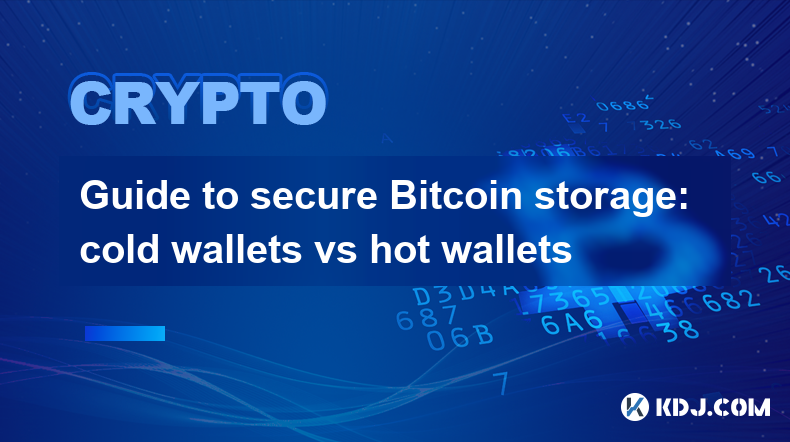-
 Bitcoin
Bitcoin $82,176.6669
0.30% -
 Ethereum
Ethereum $1,566.8943
-2.23% -
 Tether USDt
Tether USDt $0.9991
-0.03% -
 XRP
XRP $2.0177
0.48% -
 BNB
BNB $581.4598
0.61% -
 Solana
Solana $117.8958
2.65% -
 USDC
USDC $0.9996
-0.02% -
 Dogecoin
Dogecoin $0.1582
0.94% -
 TRON
TRON $0.2378
-1.09% -
 Cardano
Cardano $0.6304
0.77% -
 UNUS SED LEO
UNUS SED LEO $9.4389
0.54% -
 Chainlink
Chainlink $12.4862
0.58% -
 Avalanche
Avalanche $18.6830
3.13% -
 Hedera
Hedera $0.1731
1.12% -
 Stellar
Stellar $0.2373
0.82% -
 Toncoin
Toncoin $2.9348
-2.23% -
 Sui
Sui $2.1970
2.39% -
 Shiba Inu
Shiba Inu $0.0...01198
-0.80% -
 MANTRA
MANTRA $6.4678
-3.58% -
 Bitcoin Cash
Bitcoin Cash $302.7722
1.54% -
 Litecoin
Litecoin $76.4281
2.75% -
 Polkadot
Polkadot $3.5146
-0.65% -
 Dai
Dai $1.0002
0.02% -
 Bitget Token
Bitget Token $4.2543
-0.65% -
 Hyperliquid
Hyperliquid $15.2189
8.80% -
 Ethena USDe
Ethena USDe $0.9986
-0.02% -
 Pi
Pi $0.6039
1.43% -
 Monero
Monero $202.9285
-0.73% -
 Uniswap
Uniswap $5.1837
-0.17% -
 OKB
OKB $53.3989
-0.15%
How to buy Bitcoin at a low price by taking advantage of exchange rate differences?
Bitcoin arbitrage involves buying low on one exchange and selling high on another, but it requires careful planning, speed, and understanding of risks and fees.
Apr 01, 2025 at 01:35 pm

Understanding Arbitrage in the Crypto Market
Bitcoin, like any other traded asset, fluctuates in price across different cryptocurrency exchanges. These price discrepancies, even if seemingly small, present opportunities for arbitrage – buying low on one exchange and selling high on another. However, it's crucial to understand that this isn't a guaranteed path to riches; it requires careful planning, speed, and an understanding of the inherent risks. Profit margins are often slim, and the process can be complex.
Identifying Price Discrepancies
The first step involves consistently monitoring Bitcoin prices across various exchanges. Numerous websites and applications provide real-time price data for multiple exchanges simultaneously. You need to identify exchanges where the Bitcoin price is significantly lower than the average market price. This requires diligent research and a keen eye for detail. Remember, even small differences can add up over multiple trades, but the difference needs to be larger than the fees involved to make it worthwhile.
Choosing the Right Exchanges
Selecting reliable and reputable exchanges is paramount. Security and liquidity are key considerations. You need exchanges with a proven track record, robust security measures, and sufficient trading volume to ensure you can easily buy and sell Bitcoin without significantly impacting the price. Consider factors like transaction fees, withdrawal limits, and the overall user experience before committing to any platform. Avoid using less-known or poorly-reviewed exchanges.
Understanding Transaction Fees and Costs
Transaction fees are a significant factor in arbitrage. These fees eat into your potential profits, so it's crucial to understand the fee structure of each exchange you use. Factor in all fees – network fees (gas fees for Bitcoin transactions), deposit fees, and withdrawal fees – when calculating your potential profit. A seemingly small price difference might be wiped out entirely by high transaction fees, rendering the arbitrage attempt unprofitable.
Executing the Trade: A Step-by-Step Guide
The actual process of executing the arbitrage trade involves several steps:
Step 1: Fund your chosen exchange: Transfer funds (fiat currency or another cryptocurrency) to the exchange offering the lower Bitcoin price. Ensure you have enough funds to cover the Bitcoin purchase price and all associated fees.
Step 2: Purchase Bitcoin: Buy Bitcoin on the exchange with the lower price. Act quickly, as price discrepancies can disappear rapidly.
Step 3: Transfer Bitcoin: Transfer the purchased Bitcoin to the exchange with the higher price. This step involves network fees, which you need to account for in your calculations.
Step 4: Sell Bitcoin: Sell your Bitcoin on the exchange with the higher price.
Step 5: Withdraw funds: Withdraw your profits from the second exchange back to your preferred payment method.
Managing Risk and Avoiding Pitfalls
Arbitrage trading, while potentially profitable, carries inherent risks.
Price volatility: Bitcoin's price can change dramatically in short periods. A sudden price drop on the exchange where you're selling could eliminate your profit or even lead to a loss.
Exchange delays: Delays in transferring Bitcoin between exchanges can also impact profitability. Network congestion can lead to delays and increased fees.
Security risks: Using multiple exchanges increases the risk of security breaches. Ensure you use strong passwords and two-factor authentication on all accounts.
Liquidity issues: If the exchange where you're selling Bitcoin lacks sufficient liquidity, you might not be able to sell your entire holding at the desired price.
Regulatory compliance: Arbitrage trading may be subject to regulatory scrutiny in some jurisdictions. Ensure you understand and comply with all applicable laws and regulations.
Utilizing Automated Tools
While manual arbitrage is possible, automated trading bots can significantly improve efficiency. These bots constantly monitor prices across exchanges and execute trades automatically when profitable opportunities arise. However, using automated bots carries additional risks, including the potential for errors and the risk of losing control over your funds. Thorough research and careful selection of a reputable bot are crucial.
The Importance of Diversification
Don't put all your eggs in one basket. Diversify your investments across different cryptocurrencies and asset classes to mitigate risk. Arbitrage should be considered one strategy among many, not your sole investment approach.
Frequently Asked Questions
Q: Is arbitrage trading legal?
A: In most jurisdictions, arbitrage trading is legal, as it involves taking advantage of market inefficiencies, not engaging in illegal activities. However, you must always comply with local regulations.
Q: How much can I make from Bitcoin arbitrage?
A: Profit margins in arbitrage are typically small, ranging from a fraction of a percent to a few percent. The actual profit depends on the price difference, transaction fees, and the speed of execution.
Q: What are the risks of Bitcoin arbitrage?
A: Risks include price volatility, exchange delays, security breaches, liquidity issues, and regulatory compliance. These risks must be carefully considered before engaging in arbitrage trading.
Q: What tools can help with Bitcoin arbitrage?
A: Several websites and applications provide real-time price data from multiple exchanges. Some offer automated trading bots, but these should be used cautiously.
Q: Is arbitrage trading suitable for beginners?
A: Arbitrage trading requires a good understanding of cryptocurrency markets, exchanges, and transaction fees. It's generally not recommended for beginners due to the complexity and risks involved. Beginners should focus on learning the basics of cryptocurrency trading before attempting arbitrage.
Disclaimer:info@kdj.com
The information provided is not trading advice. kdj.com does not assume any responsibility for any investments made based on the information provided in this article. Cryptocurrencies are highly volatile and it is highly recommended that you invest with caution after thorough research!
If you believe that the content used on this website infringes your copyright, please contact us immediately (info@kdj.com) and we will delete it promptly.
- Bitcoin and gold's paths diverge as Trump tariffs trigger market rout
- 2025-04-11 17:15:13
- Remember when CryptoPunks were the ultimate flex?
- 2025-04-11 17:15:13
- The cryptocurrency market is buzzing, and Ethereum, long seen as the underestimated alternative to Bitcoin, is now in the spotlight.
- 2025-04-11 17:10:13
- Ethereum (ETH) Price Performance Mirrors the Downfall of Nokia: Will Solana (SOL) Be the Next Apple?
- 2025-04-11 17:10:13
- Friday's Crypto Snapshot
- 2025-04-11 17:05:14
- Ethereum price jumped 9% in the past 24 hours
- 2025-04-11 17:05:14
Related knowledge

What is Bitcoin halving? Analysis of the impact on prices
Apr 09,2025 at 01:14pm
Bitcoin halving is a pivotal event in the cryptocurrency world that occurs approximately every four years, or every 210,000 blocks. The event is designed to reduce the rate at which new bitcoins are generated, thereby controlling inflation and increasing scarcity over time. During a halving, the reward that miners receive for successfully adding a block...

What to do if Bitcoin is stolen? Security protection and recovery possibilities
Apr 09,2025 at 03:42pm
If your Bitcoin is stolen, it can be a distressing experience, but there are steps you can take to protect your remaining assets and attempt to recover your lost funds. This article will guide you through the process of securing your Bitcoin and exploring recovery possibilities. Immediate Actions After Bitcoin TheftThe moment you realize your Bitcoin ha...

How to avoid Bitcoin investment scams? Common scams revealed
Apr 10,2025 at 05:14pm
Introduction to Bitcoin Investment ScamsBitcoin and other cryptocurrencies have become increasingly popular investment options, attracting both seasoned investors and newcomers alike. However, with the rise in popularity, there has also been a surge in Bitcoin investment scams. These scams can range from Ponzi schemes to fake exchanges and fraudulent in...

Guide to secure Bitcoin storage: cold wallets vs hot wallets
Apr 11,2025 at 08:42am
Guide to Secure Bitcoin Storage: Cold Wallets vs Hot Wallets When it comes to storing Bitcoin, security is paramount. The choice between cold wallets and hot wallets can significantly impact the safety of your digital assets. This guide delves into the differences between these two types of wallets, their respective advantages and disadvantages, and how...

What is Bitcoin fork? Differences between BTC, BCH, and BSV
Apr 10,2025 at 02:21am
A Bitcoin fork refers to a change in the underlying protocol of the Bitcoin blockchain, which results in a divergence into two separate versions of the blockchain. This can happen as a result of a disagreement within the community about the direction of the cryptocurrency, or to introduce new features or improvements. There are two main types of forks: ...

The role of Bitcoin wallets: public keys, private keys and security analysis
Apr 09,2025 at 03:00am
Bitcoin wallets play a crucial role in the world of cryptocurrency, serving as the gateway to securely store, send, and receive Bitcoin. Understanding the intricacies of Bitcoin wallets, particularly the concepts of public keys, private keys, and security analysis, is essential for anyone looking to navigate the cryptocurrency landscape safely and effec...

What is Bitcoin halving? Analysis of the impact on prices
Apr 09,2025 at 01:14pm
Bitcoin halving is a pivotal event in the cryptocurrency world that occurs approximately every four years, or every 210,000 blocks. The event is designed to reduce the rate at which new bitcoins are generated, thereby controlling inflation and increasing scarcity over time. During a halving, the reward that miners receive for successfully adding a block...

What to do if Bitcoin is stolen? Security protection and recovery possibilities
Apr 09,2025 at 03:42pm
If your Bitcoin is stolen, it can be a distressing experience, but there are steps you can take to protect your remaining assets and attempt to recover your lost funds. This article will guide you through the process of securing your Bitcoin and exploring recovery possibilities. Immediate Actions After Bitcoin TheftThe moment you realize your Bitcoin ha...

How to avoid Bitcoin investment scams? Common scams revealed
Apr 10,2025 at 05:14pm
Introduction to Bitcoin Investment ScamsBitcoin and other cryptocurrencies have become increasingly popular investment options, attracting both seasoned investors and newcomers alike. However, with the rise in popularity, there has also been a surge in Bitcoin investment scams. These scams can range from Ponzi schemes to fake exchanges and fraudulent in...

Guide to secure Bitcoin storage: cold wallets vs hot wallets
Apr 11,2025 at 08:42am
Guide to Secure Bitcoin Storage: Cold Wallets vs Hot Wallets When it comes to storing Bitcoin, security is paramount. The choice between cold wallets and hot wallets can significantly impact the safety of your digital assets. This guide delves into the differences between these two types of wallets, their respective advantages and disadvantages, and how...

What is Bitcoin fork? Differences between BTC, BCH, and BSV
Apr 10,2025 at 02:21am
A Bitcoin fork refers to a change in the underlying protocol of the Bitcoin blockchain, which results in a divergence into two separate versions of the blockchain. This can happen as a result of a disagreement within the community about the direction of the cryptocurrency, or to introduce new features or improvements. There are two main types of forks: ...

The role of Bitcoin wallets: public keys, private keys and security analysis
Apr 09,2025 at 03:00am
Bitcoin wallets play a crucial role in the world of cryptocurrency, serving as the gateway to securely store, send, and receive Bitcoin. Understanding the intricacies of Bitcoin wallets, particularly the concepts of public keys, private keys, and security analysis, is essential for anyone looking to navigate the cryptocurrency landscape safely and effec...
See all articles























































































